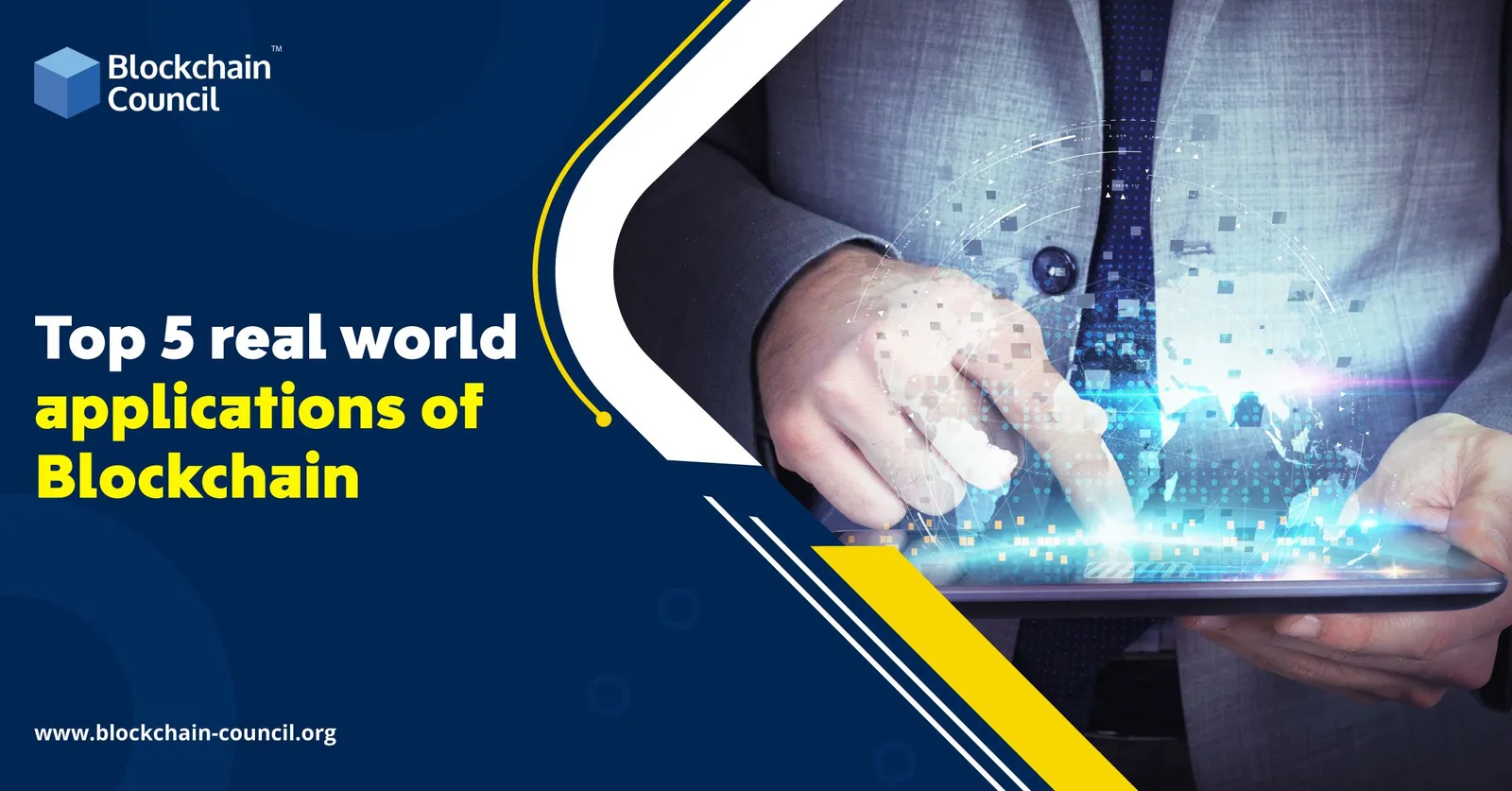Top 5 Real-World Applications Of Blockchain
The advent of Blockchain technology has paved the way for a new range of innovations across the various verticals of industry. Every part of business activity is now pursuing assistance and assistance from the Blockchain, from human resources management to financial management. In 2009, this distributed ledger technology originated as an underlying Bitcoin trading mechanism. However, its characteristics such as decentralization, transparency, data protection, and others attracted the attention of developers and Blockchain soon emerged as the mainstream technology. Most market niches are now reaping advantages from this DLT.
When it comes to practical applications, the use of Blockchain is not limited to whitepapers, but rather the technology has its roots spreading; Deloitte, Facebook, IBM, Wallmart and several other businesses are actively using this technology. And if we’re talking about Blockchain-based enterprises, so they’re not all big names. Instead, several start-ups have entered into this sector with the ultimate aim of making this technology infallible and popular.
5 Real-world Blockchain apps:
Here, we will illustrate how Blockchain developers have made this technology useful in the real world:
Smart contracts- Smart contracts are the first example that we want to bring forward here. Such digitized contracts have the ability to alter the operation of agreements. The credit for the development of the smart contract goes to Nick Szabo. On a computerized transaction protocol supervised by several nodes linked to the Blockchain network, blockchain-based smart contracts operate. In various fields, such as real estate, law, and finance, the functional usefulness of smart contracts is then used.
Voting- Voting is one of the prominent applications of Blockchain technology. The protection of the voting system has always been a question of concern, and Blockchain may be a possible solution for those who question and criticize the voting system. We can produce voting encryption with the Blockchain, allowing data attacks and threats free from the entire system. The voting system is therefore more straightforward and infallible.
Healthcare- Fighting the issue of counterfeit drugs is a significant problem that requires prompt attention; at the same time, a vast amount of data and medical information is gathered by healthcare. It can be a little difficult to retain and access this information using the traditional platform, but it can ensure data portability, integrity and security with the Internet of Medical Stuff (IoMT) and medical examination systems using AI and Blockchain. This will also help to keep a balance on the preservation of health records and patient medical history.
Food safety- Blockchain will change the entire supply chain management system that spreads from producers, brokers, distributors, regulators, and finally, the customer, according to technology experts. The food industry is lacking transparency in the current scenario, but with the intervention of Blockchain technology, we will definitely have a system that is much more open and secure. Blockchain increases traceability, meaning that the past of pf goods can be easily traced by customers, thereby ensuring the origin of food, packaging and supply.
Cybersecurity- Definitely, this point requires a lot of focus. The growing dependency on digital forums has made the virtual world vulnerable to personal information and data. Although businesses follow a system of improved protection, it has also made it easy for hackers to target the security system and steal sensitive information. According to the Identity Theft Resource Centre report, there were around 668 cases of data breach leading to a compromise of 22,408,258 records between January 1st 2018 and July 2nd 2018, and this is only one example, there are many other instances where we have seen cases of a data breach, and thus there is a need for a system that can guarantee the system’s complete safety and protection. With Blockchain, we can definitely assume that this distributed ledger platform would make it easy for the user, free of privacy risks and abuses, to place their data and records on the system. Because all DLT data is cryptographically encrypted, it allows the system much safer and more reliable than the traditional system.
The Future
There are several real-life examples of how the real world is using Blockchain. In these times to come, we expect Blockchain to achieve CAGR growth of 67.3 percent by 2025. For Blockchain developers and Blockchain experts, all of this will open up new avenues of development and job opportunities. If you too are one of those eager to develop your career well, you must consider going ahead with Blockchain certification by the Blockchain Council.
#blockchain technology #blockchain platform #blockchain expert #blockchain professionals #blockchain #blockchaincouncil
